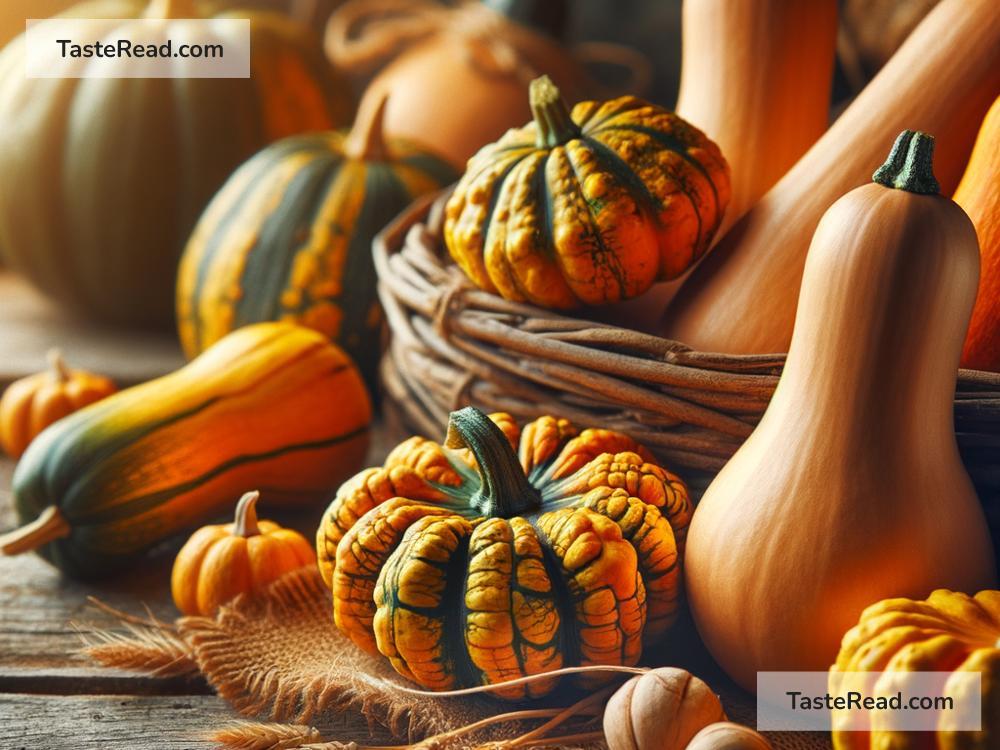Why Butternut Squash is Sweeter Than Other Squashes
Butternut squash is beloved for its naturally sweet and velvety taste, but have you ever wondered why it’s sweeter than other kinds of squash? This delicious fall favorite stands out among its cousins, like zucchini, acorn squash, and spaghetti squash, because of its unique makeup and properties. In this blog, we’ll break it down in simple terms so you can understand why butternut squash is one of the sweetest options on your plate.
The Science Behind the Sweetness
The sweetness of butternut squash comes largely from its natural sugar content. All squashes have varying levels of natural sugars, but butternut squash contains more than most other varieties. These sugars develop as the squash grows and ripens on the vine. The longer the squash matures, the more starches inside it are converted into sugars, making it taste sweeter.
Butternut squash has also been bred for its flavor over generations. It’s part of the winter squash family, which is known for its rich, dense flesh and natural sweetness. Unlike summer squash (like zucchini), which is harvested early and usually has a milder taste, winter squashes like butternut stay on the vine longer. This extra time allows them to develop their sugars and deeper flavors.
Additionally, butternut squash has a low water content compared to some other squashes. Vegetables with higher water content, such as zucchini or yellow squash, tend to taste milder because their water dilutes the natural sugars. Butternut squash is dense and creamy, so the sweetness is more concentrated.
Texture and Flavor Work Together
Even though sweetness comes down to sugar levels, there’s more to it than just chemistry. The texture of butternut squash plays a big role in how we perceive its flavor. Butternut squash has a smooth, velvety texture when cooked, which complements its sweet taste.
Other types of squash, like spaghetti squash, have a stringy, fibrous texture when cooked. While spaghetti squash has its own unique appeal, it doesn’t emphasize sweetness in the same way butternut squash does. Similarly, acorn squash has a slightly nutty flavor, and while it’s mildly sweet, it’s not quite as rich or sugary as butternut squash.
Comparisons with Other Squashes
Let’s take a closer look at how butternut squash compares with other common types of squash:
-
Zucchini: Zucchini is a summer squash with a mild and slightly grassy flavor. It has very low sugar levels and a high water content. Because of this, it tastes much less sweet than butternut squash and works better in savory recipes.
-
Spaghetti Squash: Spaghetti squash has a fun, noodle-like texture, but it’s not as sweet as butternut squash. It has a more neutral flavor and is often used as a substitute for pasta.
-
Acorn Squash: Acorn squash is closer to butternut in terms of sweetness, but it still falls short. Acorn squash has a nuttier and earthier flavor compared to the bold, caramel-like sweetness of butternut squash.
-
Delicata Squash: Delicata squash is quite sweet and is similar to butternut squash in flavor. However, it doesn’t have the same creamy texture, so its sweetness might not feel as rich or satisfying.
Versatility in Cooking
The natural sweetness of butternut squash makes it incredibly versatile in the kitchen. It can be used in both savory and sweet dishes, which is one reason many home cooks and professional chefs love it.
Because of its sweetness, butternut squash works especially well in recipes that bring out this flavor. For example, roasted butternut squash develops a caramelized surface that enhances its sugary taste. Soups and purees made from butternut squash have a natural creaminess and sweetness that don’t require much seasoning. It can also be used in desserts, like pies or baked goods, because it pairs well with cinnamon, nutmeg, and other warm spices.
On the other hand, some squashes are harder to use in sweet recipes. Zucchini, for instance, is better suited for savory dishes and doesn’t have the same sugary profile as butternut squash. And while spaghetti squash can be dressed up with sauces, it’s not really something you’d use for a sweet treat.
Seasonal Appeal
Butternut squash’s sweetness also fits perfectly with fall and winter cooking. As temperatures drop, people naturally crave warm, comforting foods—and butternut squash delivers! Its caramel-like flavor and creamy texture make it a star ingredient in soups, roasted dishes, and casseroles.
Other squashes have their unique charms, but butternut squash’s natural sweetness makes it feel extra special during colder months. It’s hearty and nutritious while also being incredibly satisfying.
Conclusion
So why is butternut squash sweeter than other squashes? It all comes down to its higher sugar content, lower water levels, smooth texture, and longer time spent ripening on the vine. Unlike some of its milder or nuttier cousins, butternut squash is rich, creamy, and naturally sweet—making it a favorite ingredient for fall and winter recipes.
The next time you’re cooking with squash, take a moment to appreciate the unique qualities of butternut squash. Whether you roast it, blend it into soup, or use it in baking, its sweetness is sure to shine through and delight your taste buds.


